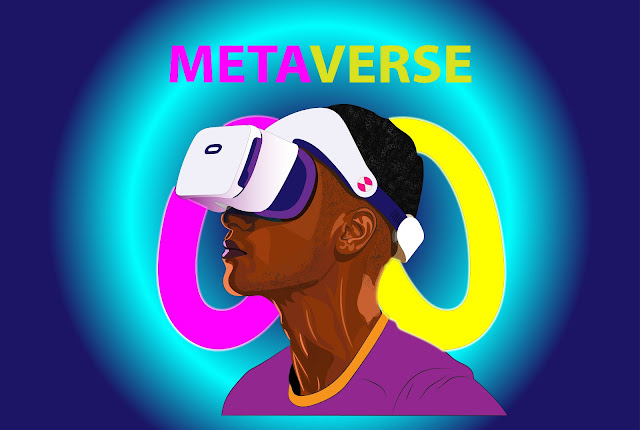Trading in Metaverse
From the evolution of NFTs to immersive virtual shopping malls, cryptocurrency loyalty programs, and D2A direct trading with avatars, we see how the technology that powers the metaverse is creating new revenue channels and retail opportunities
As the Metaverse evolves, alternative economic opportunities will be created for retailers. "Metaconomy" will open up new avenues for commerce and distribution channels in the coming years
While a third of Americans have never heard the term "metaverse", it has gained popularity in large part thanks to Facebook. In October 2021, the platform took the tabloids by storm after it changed its name to Meta to reflect its intent to transform from a social network into a Metaverse. In November, Microsoft announced its own Mesh metaverse as part of a plan to create a virtual workspace
Big brands outside of tech are also gearing up to launch into the new reality. Nike has filed patents for digital goods such as digital sneakers to be sold as NFTs. The company is also launching a Metaverse studio and is already recruiting employees whose competencies may be in demand.
Analyst agency WGSN has been tracking the growth of the metaverse for over three years now, highlighting the opportunities for brands in virtual worlds through AR and VR, NFTs, games, and blockchain. In August 2021, the agency produced a series of metaverse reports that reveal business opportunities in the virtual world. Additionally, the potential of retail in the metaverse was explored, revealing sales opportunities and strategies from decentralized trade to metaverse shopping centers
NFT position
Proving their worth beyond just collectible pictures, innovative strategies around digital tokens are emerging as a way for brands to incentivize purchases, build loyalty and accelerate community engagement
NFTs have opened the door to crypto in a broader consumer sense, with one-of-a-kind digital collectibles representing a unique asset, usually created on the Ethereum blockchain. After what was considered a cool-off in the second half of 2021, NFT trading volume grew by 704% ($10.67 billion) in Q3 compared to the previous quarter
NFT began to define the cultural landscape of 2021 when everything from decentralized domain names and virtual game items to tweets and memes was created and sold. As trust grows in the blockchain powering NFTs and digital tokens are integrated into mainstream culture, there are new opportunities to fight counterfeiting and create lasting interactions in the form of digital souvenirs and digital collectibles
Digital souvenirs
The Web2 adage “No photo means it wasn’t” will soon be replaced by “No token means it wasn’t”, with the growth of proof of attendance or POAP protocol tokens
Increasingly popular among event holders and Web3 communities, POAPs are digital souvenirs that are free NFT “tokens” hosted on the xDai chain, Ethereum’s greener sidechain. There are several versions, but POAP is the most trusted protocol among the Web3 communities
Originally designed to allow users to capture life events (like Facebook is to blockchain), POAP can also be used commercially. They have been used by brands such as ATARI, the Decentraland Metaverse Music Festival, and NFT NYC, where the organizers created a POAP "treasure hunt" that revitalized offline and online businesses
What will POAP mean for retail? Proof-of-attendance tokens are based on familiar retail mechanics. They can be used as a gift with purchase for limited drops or given away to attendees of virtual and IRL events such as sales, conferences, concerts, activations, etc. When a brand uses POAP, they are free to promote their event on the POAP calendar, which is available both publicly and to the POAP community
Digital tokens create brand loyalty and capture common ground. For brands, POAP can speed up engagement with the community as POAP allows for many integrated services such as member private chats, sweepstakes, or contests
Decentralized trading
Addressing the challenges faced by companies and retailers in centralized e-commerce systems, decentralized commerce (eCommerce) uses the transparency of blockchain and smart contracts to bring fairness to small businesses
If the decentralized finance boom arose because consumers were looking for a fairer alternative to traditional structures, then decentralized trading is a fair alternative to trading
In traditional forms of e-commerce, buyers and sellers often have to pay intermediaries to manage risk and trust, many of which are addictive for small businesses. These intermediaries can be eBay, Amazon, Etsy, Meta (Facebook), Stripe, PayPal, Shopify, or any other e-commerce giant that exchanges sales offering a security guarantee
These intermediaries also have disadvantages. Many major players have a stranglehold on market prices, distribution networks, payment methods, and supply chains. In addition, vendors face commissions, product category restrictions, visibility issues, and brand autonomy. Ethical considerations also can be an issue. that's why Decentralized trading is the next big thing because it offers a solution to this problem


إرسال تعليق